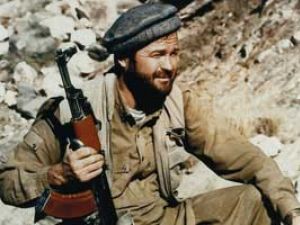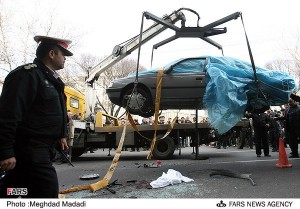Can Hillary Turn on Electricity in Yemen Better than AQAP?
Due to the vagaries of smart phone RSS feeds, I re-read this story over the weekend. In addition to describing Secretary of State Clinton’s speech before the Special Operations Forces Industry Conference–in which she described how special ops fit into her idea of really smart power–it also aired JSOC complaints about Hillary’s proposed closer ties between diplomacy and special ops.
But rumor has it Clinton’s vision has its detractors — and that its implementation in hotspots such as Yemen and Congo has made some Special Operations Forces officers very unhappy. In Yemen, in particular, some commando officers look upon the State Department’s expanding shadow-war powers as a bureaucratic intrusion on what should be military territory. A source tells Danger Room that in Yemen State has effectively hijacked all U.S. counter-terrorism funding, requiring a labyrinthine approval process for even small expenditures. According to detractors, the funding control is a way of cementing State’s expansion into the Special Operations Forces traditional remit.
McRaven does not share the officers’ objections. The admiral has enthusiastically widened and deepened his command’s alliances with commando forces from allied nations — all in a bid to build what he calls the “global SOF partnership.” The Army 10th Special Forces Group’s ongoing deployment to Afghanistan is a perfect example: 10th Group’s Afghanistan task force includes commandos from Poland, Romania and several other countries. In a sense, McRaven is becoming more of a diplomat as Clinton becomes more of a warrior. Meeting in the middle, they’ve apparently chosen to be allies instead of rivals.
In that context, Clinton’s appearance at an otherwise minor military trade show is an important signal. McRaven is showing his officers that if he and America’s top diplomat can get along, then they can get along with their own State Department counterparts, as well. An evolving vision of American warfare is counting on it.
This story came out on May 24, just a few days after this largely unnoticed AP story described John Brennan seizing control over targeting. One reason for Brennan to do so, it seemed, was to give State more direct influence over targeting.
The move concentrates power over the use of lethal U.S. force outside war zones at the White House.
The process, which is about a month old, means Brennan’s staff consults the Pentagon, the State Department and other agencies as to who should go on the list, making a previous military-run review process in place since 2009 less relevant, according to two current and three former U.S. officials aware of the evolution in how the government targets terrorists.
[snip]
But some of the officials carrying out the policy are equally leery of “how easy it has become to kill someone,” one said. The U.S. is targeting al-Qaida operatives for reasons such as being heard in an intercepted conversation plotting to attack a U.S. ambassador overseas, the official said.[my emphasis]
That is, it seems like this process–which the AP dates to sometime in mid-April–allowed State to bypass DOD’s vetting process by submitting targeting suggestions directly to Brennan. And the AP story appeared to arise out of the same disgruntlement within JSOC as Wired’s story.
Now, I actually support Hillary’s efforts to strengthen State’s soft power efforts; we won the Cold War as much with soft power and oil price manipulation as we did by bankrupting Russia with an arms race. But we’ve sucked at it ever since. Read more →



